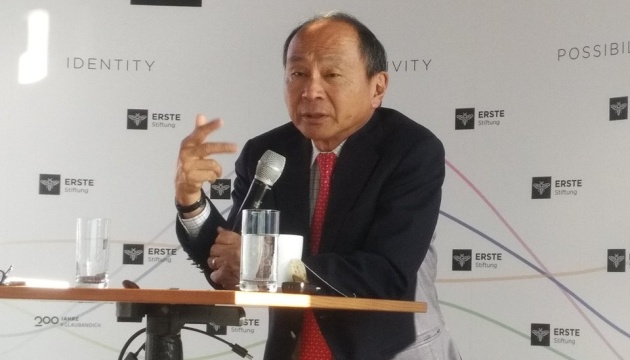
Fukuyama calls emergence of populism greatest challenge to democratic world
He said this in his speech on "Identity Politics – The Demand for Dignity and the Nation State's Future" during Tipping Point Talks organized by the ERSTE Foundation in Vienna on Thursday, March 7, according to an Ukrinform correspondent.
"From my standpoint, the most disturbing thing was the emergence of populism within established democracies and, in fact, within the two most established democracies: Britain and the United States," Fukuyama said.
According to the U.S. professor, he has three definitions of populism.
"The first definition is an economic one. The populist is a leader who promotes economic policies, social policies that are popular in the short run but disastrous in the long run," Fukuyama said.
As a typical example of economic populism, he provided the situation in Venezuela where state leaders gave out free food and energy resources to the population but the price of oil collapsed.
"The second definition is more of a political style than anything else. A populist leader tries to be charismatic and says 'I have a direct connection with you the people.' And that's actually quite important because it makes a populist, I think, ipso facto anti-institutional. The populist says: 'I represent you the people and here are all the other institutions, like courts, like the media, like a legislature, bureaucracy'," Fukuyama said.
According to him, this poses a threat to liberal democracy since all democratic institutions are under control and in conditions of limited power.
An example of this, the political scientist said, is, in particular, U.S. President Donald Trump.
Concerning the third definition of populism, Fukuyama called the use by the populist leader of traditional cultural identity. In this case, he gave the example of Hungarian Prime Minister Viktor Orban who states that "if you are not an ethnic Hungarian, then you are not part of the nation."
Describing the situation in Europe at this stage, the U.S. philosopher mentioned many events that are harmful to the continent. According to him, the issue concerns the election of Donald Trump as U.S. president and the Brexit vote in Britain to go out of the EU.
"This came against the backdrop of a really changing global environment," Fukuyama said.
op




